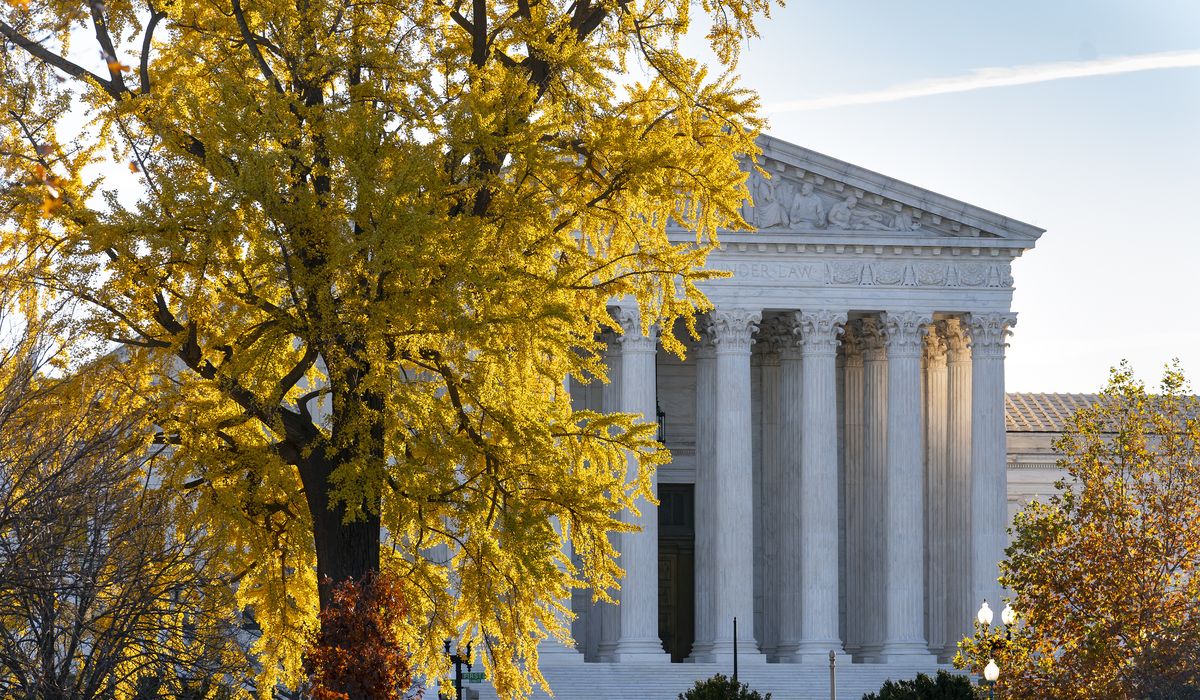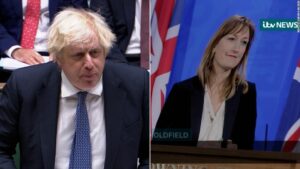Maine struggled Wednesday to defend its school funding system before the U.S. Supreme Court, with GOP-appointed justices casting a skeptical eye on the program, which pays for students to attend some private schools as long as their classrooms aren’t too religious.
The state says the money is meant to support a secular education in areas where there aren’t enough public schools to accommodate all the students. Parents can send children to private schools that offer a nonreligious curriculum at taxpayer expense.
Christopher Taub, Maine’s deputy attorney general, said that doesn’t exclude all religious schools but does block those that teach science, literature and other subjects with a religious bent.
Chief Justice John G. Roberts Jr. said that means the state ends up picking and choosing some religious schools and rejecting others.
“We have said that is the most basic violation of the First Amendment religion clauses for the government to draw distinctions between religions based on their doctrine,” said the chief justice, an appointee of President George W. Bush.
The case is the latest to test the bounds of religious exercise, where the high court in recent years has been expanding opportunities for religious believers to get access to government programs.
The justices previously ruled that states can’t block money flowing to schools just because they have a religious affiliation or status. But Wednesday’s case tests whether they can block money they believe is specifically going to a religious curriculum.
Maine argues that its program isn’t a voucher system but rather a stand-in for the actual public schools.
The state says in areas where the public schools just don’t have the capacity to accommodate all the students, children are allowed to use state money to attend private schools, but only to obtain an education comparable to a public school.
A religious-based school can’t meet that test because its very nature is promoting a sectarian viewpoint, the state argues.
Michael Bindas, a lawyer for the families, said Maine used to allow religious schools to participate, and it only changed the policy in the 1980s. He said that belies the argument this is a matter of secular education.
“Call it what you will, either way, it is discrimination based on religion, and either way it is unconstitutional,” he said.
Justice Stephen G. Breyer, a Clinton appointee, said Maine’s program is discriminatory, but he said that’s the outcome of the Constitution’s bar on supporting an establishment of religion.
“There are 65 religions or more in this country. They believe a lot of different things. What’s worrying me is if the state must give money to the schools, they’re going to get into all kinds of religious disputes,” he said. “There was a reason why this court’s cases have said we do not want to get into a situation where the state is going to pay for the teaching of religion by practicing religious organizations.”
Justice Sonia Sotomayor, an Obama appointee, said parents all enjoy the same right to free public education. She said the challengers are asking for more than that when they want public money to go to a religious school.
“Where is the discrimination?” she said. “These parents are put to the same choice that every other parent in Maine is put to.”
Her argument was similar to one that opponents of same-sex marriage made in 2015 when the court was hearing a landmark case on the issue. Those opponents said marriage was a right to couple with someone of the opposite sex and asking for a right to marry someone of the opposite sex was an expansion.
The court rejected that argument in the marriage context.
One difference in Wednesday’s case is that it involves a financial benefit from the government — a free public education.
Justice Clarence Thomas, appointed to the court by President George H.W. Bush, pointed out that Maine requires children to obtain an education, but doesn’t provide enough classrooms to handle the students.
“I don’t know how it can be a benefit when you’ve required it,” he said.
GOP-appointed justices tossed numerous hypotheticals at Mr. Taub, Maine’s lawyer, such as whether a unitarian school that doesn’t teach a belief in God would qualify. Justice Samuel A. Alito Jr. wondered whether a school that taught critical race theory would qualify.
Mr. Taub said he wasn’t sure, and it might depend on what critical race theory meant in that case.
He also said the hypotheticals being raised were far outside the bounds of the types of cases Maine actually was seeing.
A 2020 Supreme Court ruling loomed large over Wednesday’s case. In Espinoza v. Montana Department of Revenue, the justices ruled 5-4 that states who offer tax credits to fund scholarships for children to attend private schools cannot block the money from being used for a religious school.
But Maine says that ruling only dealt with the identity of a school as a religious-based institution. The state says using its money for a religious purpose is a different question, and one the justices haven’t tested.
The makeup of the court has changed slightly since that 2019 ruling, Justice Ruth Bader Ginsburg, who wrote the chief dissent, has died. Justice Amy Coney Barrett — the third of President Trump’s high court picks — replaced her.
The case now before the justices was Carson v. Makin.
David and Amy Carson are parents of a child who attended Bangor Christian School and who sought the public tuition assistance money. A. Pender Makin is commissioner of Maine’s Education Department.
A district court judge and later the 1st U.S. Circuit Court of Appeals both ruled in favor of Ms. Makin and against the Carsons.
Bangor Christian said it wouldn’t accept state money, according to the argument Wednesday. Given that, the court must first decide whether the Carsons have standing to bring the lawsuit.



















